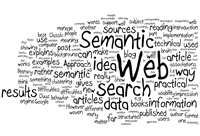
- Faculty:
- Jeffrey R. Schoenberger, Esq.
- Duration:
- 1 Hour 4 Minutes
- Format:
- Audio and Video
- Short Description:
- Legal technology is a double-edged sword; it can cause malpractice, or it can guard against it! Most of the top causes for malpractice and grievance issues are related to organization, communication, and law office management. As such, they are largely preventable. How do you properly communicate confidential information with clients? How do you properly negotiate documents with opposing counsel?

- Faculty:
- Jennifer M. Ramovs, Esq.
- Duration:
- 1 Hour 1 Minutes
- Format:
- Audio and Video
- Short Description:
- A high percentage of malpractice practice claims and practice management issues are caused by communication breakdowns. The growing number of communication channels only compounds the problem. Examine technologies and techniques that will help you improve internal and external communication, lower your stress, improve your service, generate happier clients, and lower your malpractice...

- Faculty:
- Irwin Karp, Esq.
- Duration:
- 1:01
- Format:
- Audio and Video
- Short Description:
- Learn the essential elements of clear communications and tips for assuring clear and effective communications with your clients, colleagues, and staff. Rule 1.4 of the ABA Model Rules of Professional Conduct directs attorneys to “keep the client reasonably informed” about their matters through clear and timely communications. Lawyers who are busy litigating, deal-making, or...

- Faculty:
- Sharon D. Nelson, Esq. | John W. Simek
- Duration:
- 1 Hour 1 Minutes
- Format:
- Audio and Video
- Short Description:
- One of the most overlooked aspects of security is training for employees. Employees are unwittingly involved in more than 80% of successful attacks. It has never been more critical for organizations to implement effective risk mitigation strategies, enhance security posture and protect information assets – which is hard to do without educating your employees. This is very important training

- Faculty:
- Carole Levitt | Mark Rosch
- Duration:
- 1:03:56
- Format:
- Audio and Video
- Short Description:
- Just because a record is “public” doesn’t mean it has to be easy to access or even

- Faculty:
- Jeffrey R. Schoenberger, Esq.
- Duration:
- 1 Hour 3 Minutes
- Format:
- Audio and Video
- Short Description:
- Law and medicine were always the pair: well-respected professions, pathways to middle class (or better!) comfort, and laggards with technology. Whether you went to a doctor’s office or a lawyer’s office, paper ruled the day. But that’s changing. One of the last bastions of “paper is king” is the executed document – “wet” signatures serving as proof ...

- Faculty:
- Jeffrey R. Schoenberger, Esq.
- Duration:
- 1:00
- Format:
- Audio and Video
- Short Description:
- Law and medicine were always the pair: well-respected professions, pathways to middle class (or better!) comfort, and laggards with technology. Whether you went to a doctor’s office or a lawyer’s office, paper ruled the day. But that’s changing. One of the last bastions of “paper is king” is the executed document – “wet” signatures serving as proof ...
Thu, May 23, 2024 - 10:00am to 11:03am PDT

- Faculty:
- Britt Lorish
- Duration:
- 0:58
- Format:
- Audio and Video
- Short Description:
- Floods, market crashes, hurricanes, fires, personal illness, malicious employees —we live in a troubled world. You probably don’t need to protect your firm from extraterrestrials (well … not yet), but you do need to be forearmed against reasonably foreseeable disasters, natural or man-made! There are easy, and cheap steps that you can take to help ensure continued service

- Faculty:
- Roy Ginsburg
- Duration:
- 1:00
- Short Description:
- The representation of women and minorities in major U.S. law firms, especially at the partnership level, remains abysmally low. The numbers indicate that relative to the overall population (half women; one-third minority) and that of the demographic makeup of law students, women and minorities continue to be under-represented among the partnership ranks at major law firms. According to the latest

- Faculty:
- John Federico, Esq.
- Duration:
- 1:00
- Format:
- Audio and Video
- Short Description:
- Reusing old documents with find and replace has a high margin for error and is slower than better, alternative methods. Discover how to leverage the best of your intellectual capital to increase speed, accuracy and efficiency. Improved drafting methods directly impact the bottom line and improve client satisfaction.
Please wait ...

